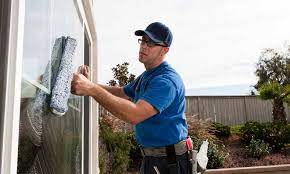Transform Your Space with Sparkling Clean Windows: Tips and Tricks
The perfect, streak-free shine on your windows could be like unlocking an undiscovered level of cleanliness in your office or home. Yet, professionals know that window cleaning is more than just cosmetic; it can increase light diffusion, increase curb appeal, and even safeguard your windows from long-term damage. This guide is here to simplify the process and provide you with helpful tips and tricks to achieve the clear, crystal-clear view you want.
The Importance of Clean Windows
window cleaning do more than just look good. They let natural light be a part of your home making it a warmer and more inviting environment. This does not just improve the mood but also can reduce energy bills by lessening the requirement to use artificial light. Also, regular cleaning can prevent the accumulation of dirt and grime which can cause scratches and decrease the life span of your windows.
Tools of the Trade
Proficient window cleaning starts with the appropriate tools. Essential items include a quality squeegee, microfiber towels as well as a bucket and a mild cleaning solution. Many professionals swear by a simple mixture of dish soap and water Some prefer commercial cleaners specifically designed for windows. It is important to stay clear of harsh chemicals that could harm the glass or surrounding frames.
Preparing for the Clean
The preparation is essential for efficient window cleaning. Start by getting rid of dust and loose dirt using a clean microfiber cloth as well as a gentle brush. This stops debris from scratching glass in the process of cleaning. If you’re working with high windows make sure your ladder is stable and placed on a flat surface to avoid any accidents.
The Perfect Technique
To achieve a streak-free finish, you need some practice. Begin by applying your cleaning solution liberally onto the glass using a sponge or spray bottle. Then, use the squeegee in a gentle continuous, continuous motion, whether vertically or horizontally, to clean the solution. After each use, wipe the squeegee’s blade using a clean cloth in order to keep streaks from forming.
Tackling Stubborn Stains
Sometime, windows accumulate stubborn stains from bird droppings or hard water deposits. In such cases an abrasive that is gentle like baking soda and water could be effective. Apply it to the stain, then gently scrub with a non-scratch pad, and then rinse thoroughly. For deposits of minerals commercial lime and calcium removers may be required.
Maintaining the Shine
To keep your windows looking their best Maintaining your windows regularly is crucial. Try to clean your windows in your residential windows at least once a year, whereas commercial properties will require greater attention. While cleaning, inspect your windows for signs of damage such as cracked seals or broken seals. Address any issues as soon as they arise to preserve their strength.
Safe Practices
It is essential to be safe when cleaning windows particularly on higher floors. Make sure you use an appropriate ladder, and do not overreach; instead, move the ladder when needed. You may want to consider using a safety harness if required. If you’re uncomfortable with heights or have large windows, hiring a professional can save time and reduce the risk.
The Benefits of Hiring a Professional
While cleaning your own windows is enjoyable however, there are unquestionable advantages when you hire an experienced window cleaner. Professionals are experienced and have the tools to tackle difficult tasks safely and efficiently. They also have access to hard-to-reach places and offer services such as screen cleaning and frame maintenance and ensure a perfect final product.
Environmental Considerations
If you’re concerned about the environmental impacts in cleaning chemicals, a variety of eco-friendly solutions are available. The natural ingredients such as the juice of lemon and vinegar work as efficient cleaners that are safe for the environment. In addition the use of reusable microfiber cloths in place of towels reduces the amount of waste.

